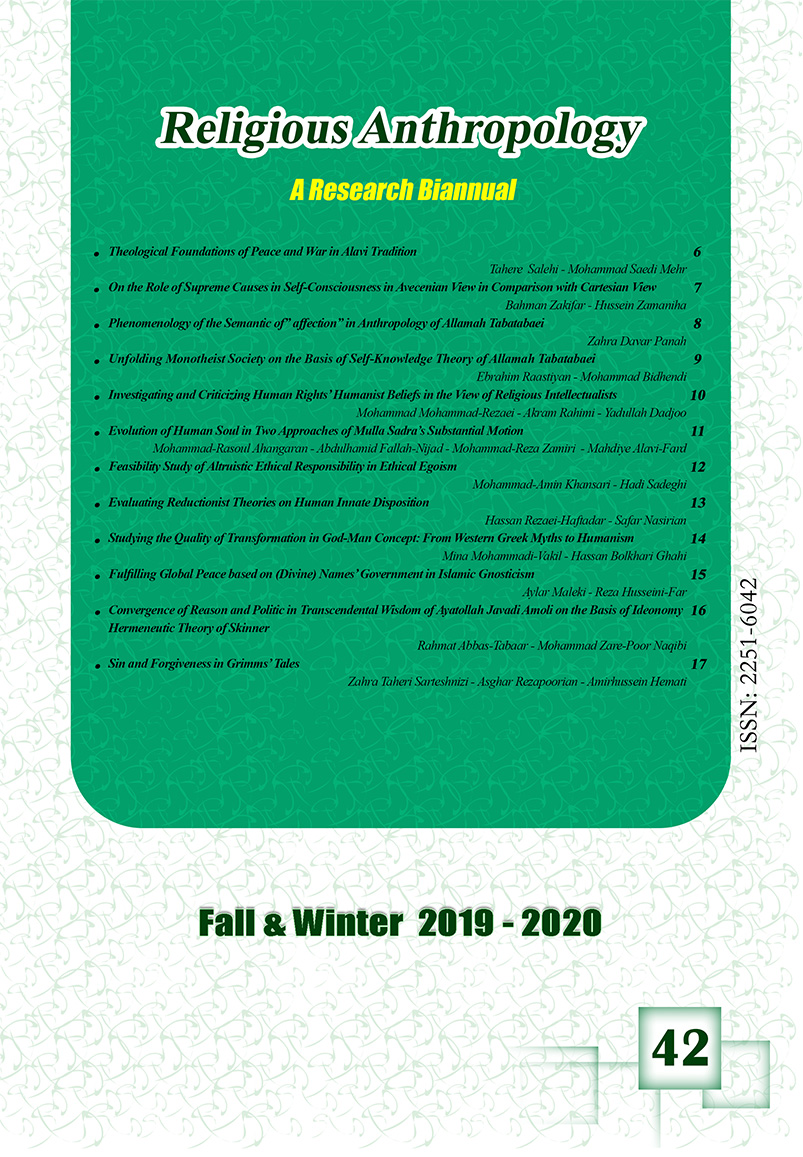On the Role of Supreme Causes in Self-Consciousness in Avecenian View in Comparison with Cartesian View
Document Type : Research Paper
Authors
1 M.A in Department of Philosophy and Islamic Theosophy, Shahed Univeristy
2 Assistant Professor in department of Philosophy and Islamic Theosophy
10.22034/ra.2019.90656.2192
Abstract
Avicenna and Descartes believe that self-consciousness is an immediate perception resulted from a kind of introspection. However, in Avecenian philosophy, a distinction is drawn between two levels of self-consciousness i.e. first order and second order self-consciousness and it is stipulated that second order self-consciousness is potential task governed by intellect. In this view, it is also asserted that every potential requires an external agent to actualize. Thus, it is concluded that in Avecenian view, human intellect can only develop into self-consciousness while illuminated by active intellect. Therefore, human intellect even for gaining immediate consciousness of self stands in the need of illumination by active intellect. However, Descartes basically rejects the role of supreme causes in self-consciousness. This apparently subtle distinction between the views has resulted in totally different conclusion by the two philosophers.
Keywords
